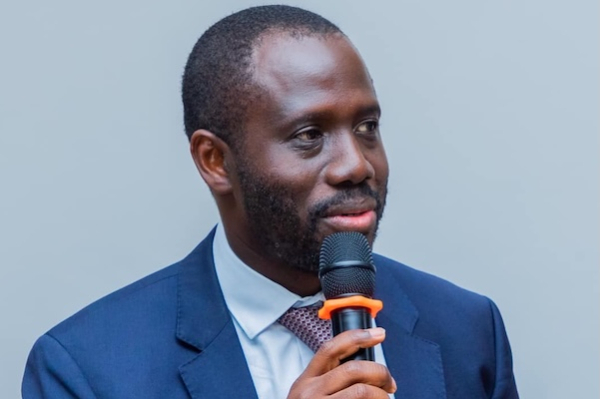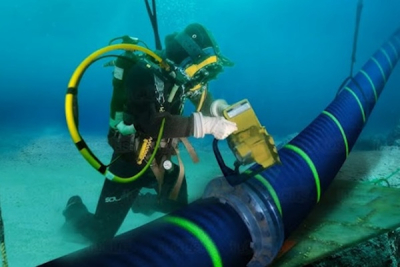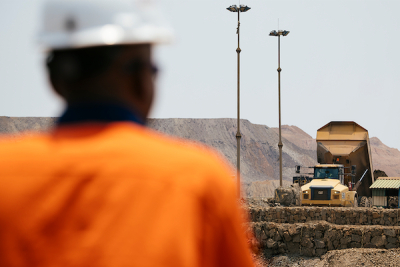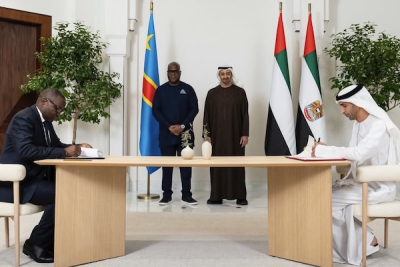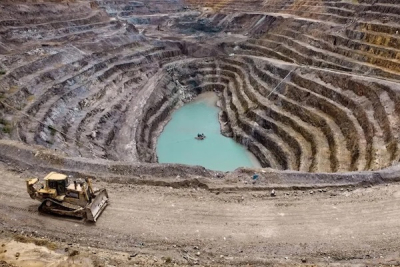Access to financing, housing shortage, electrification, agriculture… Regional representative of the International Finance Corporation (IFC) for the Democratic Republic of Congo (DRC), Burundi, and Congo-Brazzaville, Malick Fall outlines the main obstacles to the development of the private sector in the DRC. In this interview, he also discusses the reforms undertaken with the Congolese authorities and the ongoing projects aimed at unlocking investments in key sectors.
Bankable: How does the IFC currently view the major obstacles to accessing financing in the DRC?
Malick Fall: Access to financing is a really important issue for the IFC, especially when it comes to small and medium-sized enterprises (SMEs). This sector creates a lot of jobs, and job creation is a top priority for the World Bank Group, which includes the IFC.
There are several hurdles for SMEs trying to get funding. Often, these businesses operate informally, which makes it harder for them to tap into formal financial tools. They frequently lack audited financial statements, so they can't easily prove they're creditworthy. Their small size and susceptibility to economic ups and downs also make them seem riskier to financial institutions.
The financing gap hit 27% of GDP in 2024, which is roughly $11 to $12 billion. About 52% of SMEs are struggling with this issue
Based on these observations, we've put a strategy in place in the DRC to boost SME financing. We're doing this by setting up dedicated funding through financial institutions, including commercial banks and microfinance companies. We currently manage a portfolio of just over $100 million, which we plan to more than double soon to provide more financial instruments, credit lines, and guarantees. This effort also comes with technical assistance, as we need to help banks better serve specific market segments, like women entrepreneurs or the agriculture sector. We also hold equity in financial institutions within our portfolio, all with the goal of empowering these institutions to do more for SMEs.
Bankable: In February 2023, the IFC estimated the financing gap for micro, small, and medium-sized enterprises at 26% of GDP. What is the situation today, one year later, and what structural reforms do you recommend to close the gap?
Malick Fall: The situation hasn't improved; the financing gap hit 27% of GDP in 2024, which is roughly $11 to $12 billion. About 52% of SMEs are struggling with this issue, so major reforms are clearly needed. We're working closely with both the Ministry of Finance and the Central Bank of Congo on this.
For example, we helped revise the leasing law to make this financing tool, which SMEs widely use, more appealing in the DRC. Leasing lets SMEs get funding without necessarily needing to offer assets as collateral, which most of them don't have. This really helps them access credit.
We're also currently collaborating with the Ministry of Finance to develop the capital market. This will allow the DRC to bring in more financing, especially the long-term kind that sectors like industry need for growth.
The study also pinpointed several obstacles for private sector investors. One major example is land insecurity; about 80% of legal disputes in the courts are related to land. That's a problem that absolutely needs to be resolved.
Additionally, we're working with the Central Bank to establish a credit bureau. This will give financial institutions better credit information about loan applicants. Every time we've launched a program like this, we've seen a significant increase in lending because better information naturally reduces risk.
These are just a few examples of what we're doing, in addition to our investment activities, to strengthen the financial infrastructure and make lending less risky for financial institutions.
Bankable: Access to housing remains extremely limited for most Congolese, primarily due to the absence of a robust mortgage market. You recently mentioned the IFC is looking into this issue. What specific initiatives has the IFC undertaken to address this?
Malick Fall: Housing is a really critical issue, especially in the DRC. It's a huge country with a large, fast-growing urban population, yet there's a major housing shortage. In 2022, we conducted an in-depth study that uncovered some key findings. The housing deficit stands at 4 million units, meaning over 250,000 homes need to be built every year to close that gap, with half of those specifically in Kinshasa.
Despite this pressing need, financing for the housing sector remains severely limited. For instance, our study revealed that the total mortgage credit available across the entire DRC is only $30 million. That's less than 1% of all loans issued nationwide, highlighting a significant shortfall. To tackle this, we need reforms that make transactions in the sector more secure, which will help attract more private investment.
When we're talking about legal and regulatory reforms, we just can't rush things. It has to be an inclusive process, and the resulting legal documents absolutely must deliver the outcomes we expect.
The study also pinpointed several obstacles for private sector investors. One major example is land insecurity; about 80% of legal disputes in the courts are related to land. That's a problem that absolutely needs to be resolved.
We've proposed a program aimed at reforming the business climate within the housing sector. This includes, for instance, changes to the notary profession to make transactions between buyers and sellers more secure. Granting notaries legal liability could help protect transactions and boost activity in the sector.
We also identified reforms crucial for improving access to credit. For example, property titles, or certificates of registration, are typically issued only after land development is complete. This means real estate developers don't have titles to show banks as collateral, which severely limits their ability to secure financing. Changing this is essential to enable more bank lending for the housing sector.
Bankable: What is the timeline for this program?
Malick Fall: We definitely need to get this done as quickly as possible, and we're working on it. But what's most important is doing it right. When we're talking about legal and regulatory reforms, we just can't rush things. It has to be an inclusive process, and the resulting legal documents absolutely must deliver the outcomes we expect. So, yes, we need to move fast, but without cutting corners.
Bankable: The DRC aims to triple its electricity access rate by 2030 under the National Energy Compact, which seeks to mobilize nearly $20 billion in private investment. The IFC is preparing projects in this area. What can you tell us about that?
Malick Fall: The electricity sector is a strategic cornerstone of the IFC's work in the DRC, simply because you can't discuss industrialization without reliable power. The country already faces a massive electricity deficit, so we're actively engaged in several projects. We truly welcome the Compact initiative; it will help us better coordinate the efforts of various stakeholders in the sector, ensuring we're more complementary and aligned.
We have an initiative called Scaling Mini-Grid, a joint project with the World Bank designed to create platforms that support energy projects in more remote areas.
At the IFC, we're involved in electricity generation, transmission, and distribution. We need to expand transmission networks to effectively spread power across the country. Across all these segments, we're leading projects as both investors and developers, focusing on getting them ready so they're bankable. This way, they can attract funding from us and other financial partners eager to invest in this crucial sector.
Bankable: Can you name a few of these projects?
Malick Fall: We have an initiative called Scaling Mini-Grid, a joint project with the World Bank designed to create platforms that support energy projects in more remote areas. We're currently rolling this out in Kasaï, aiming to establish conditions that will attract mini-grid operators to invest in power generation and distribution under a clear framework. We're very optimistic about this project. If it proves successful, it could be replicated in several other parts of the DRC, and even across Africa. This is a significant undertaking that could really expand energy access throughout the country.
As I mentioned, we're also working on another project focused on electricity transmission. Both of these projects are still in preparation, and I hope to share more details once they are finalized.
Bankable: Agriculture is another key pillar of IFC’s program in the DRC. In 2023, you were one of the organizers of the Agribusiness Forum. More than a year later, what concrete progress has been made based on the discussions and recommendations from that major event?
Malick Fall: Agriculture is indeed a vital sector in the DRC, where the potential is immense. With vast arable land and abundant water resources, the DRC could easily become an agricultural powerhouse, assuming it can attract investment and implement the necessary reforms. Currently, the country imports $2 billion worth of food every year, which is frankly an anomaly given its capabilities. It should be exporting $2 billion instead.
We also recently invested in a 5,000-hectare project in Katanga to produce maize and wheat. This is our first investment there, and I'm hopeful it will pave the way for many more very soon.
One key takeaway from the Agribusiness Forum, which we co-organized with the Ministry of Finance, the Ministry of Agriculture, and the AfDB, was the critical need to improve the investment framework to draw in agricultural investment. That's precisely why we then focused on special economic zones (SEZs). The idea was to create secure enclaves where investors would have the guarantees they need to invest safely in the sector. What's truly needed is secure land tenure, access to basic infrastructure like transportation and electricity, and a legal environment that encourages significant capital investment.
We're pleased with the progress made on SEZs. Alongside the World Bank, we helped draft several decrees that make SEZs more operational and competitive in the DRC. We also recently invested in a 5,000-hectare project in Katanga to produce maize and wheat. This is our first investment there, and I'm hopeful it will pave the way for many more very soon.
Bankable: You haven’t communicated much about the investment opportunities this new framework offers for agriculture…
Malick Fall: It's an ongoing process. It's true we've made progress, but it's not finished yet. I believe everything in its own time. We're working very effectively with the authorities on these Special Economic Zone issues, but the process is still underway. And of course, we'll communicate the results of this process at the appropriate time, together with the government and the World Bank, our partner.
Interview by Aboudi Ottou






